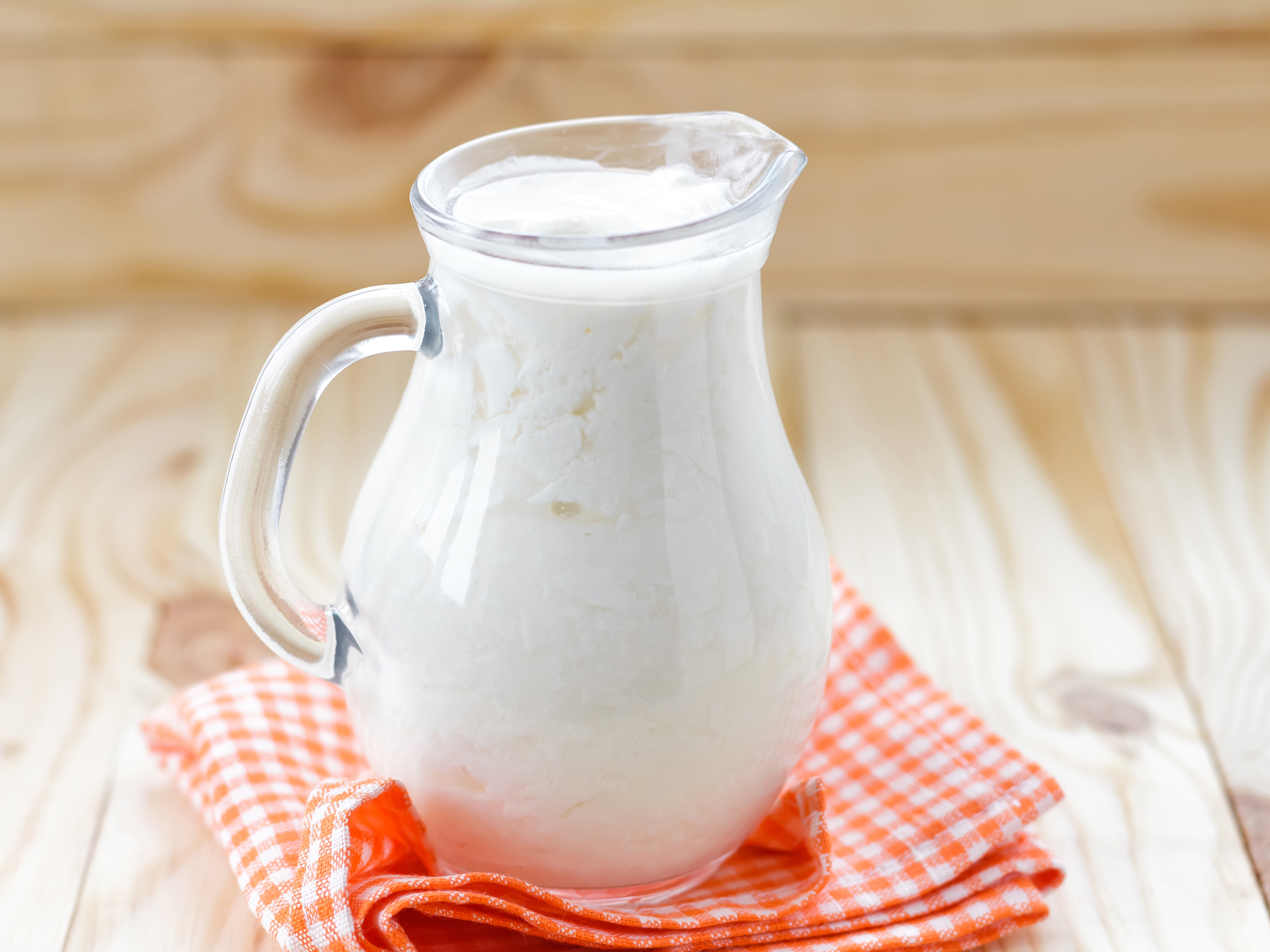Get Easy Health Digest™ in your inbox and don’t miss a thing when you subscribe today. Plus, get the free bonus report, Mother Nature’s Tips, Tricks and Remedies for Cholesterol, Blood Pressure & Blood Sugar as my way of saying welcome to the community!
4 fabulous reasons to drink your yogurt

Eating yogurt is one of the healthiest ways to get your daily dose of dairy. And I’m guessing you know why…
Because it’s packed with probiotics, of course!
But if you’re bored with the plain old yogurt you usually eat (or even if you’re not), you may want turn to yogurt’s more thirst-quenching cousin — kefir — for a change of pace and better health benefits.
Kefir, in case you’re unaware, is fermented milk (usually from a cow) that tastes a heck of a lot like drinkable yogurt. It’s made by mixing milk with kefir grains, little particles that contain bacteria, yeasts, milk proteins and complex sugars. These grains cause the milk to ferment producing the delectable yogurt-like beverage known as kefir.
Now, if you’re wondering why you should try kefir rather than just sticking to your usual yogurt, the reasons are many…
Kefir contains more probiotic strains than yogurt, for one. It contains somewhere between 27 and 30 strains, whereas yogurt only contains two to seven strains. So each sip is filling your body with more probiotic goodness than each spoonful of yogurt.
On top of that, studies show kefir has other unique health benefits that may inspire you to add it to your next shopping list…
It may protect against food allergies.
A 2006 study found that the beneficial bacteria in kefir may protect against food allergies. In the study, researchers gave mice kefir, and after three weeks, they produced less antibodies to a common allergen from egg called ovalbumin (OVA). That means their immune system stopped overreacting to the allergen. Other studies show that kefir can prevent food allergens from making it past the intestinal wall too.
It’s easy to digest—especially if you’re lactose intolerant.
Did you know that 60 percent of adults can’t digest milk because of a sugar in milk called lactose? Not everyone realizes it, of course. They may deal with digestive symptoms now and again, but they never connect the dots and realize the culprit is dairy. So basically, more people are lactose intolerant than tolerant. Luckily, kefir contains an enzyme that’s necessary to digest lactose, making it easier on your gut.
It protects you from nasty bacterial infections.
Kefir is better at fighting off dangerous bacteria than yogurt. Studies show it battles some of the worst bacterial offenders like Salmonella, Helicobacter Pylori and E. coli. That’s probably because kefir contains both a beneficial bacteria (Lactobacillus kefiri) and a carbohydrate (Kefiran) with proven bacteria-fighting abilities.
It has cancer-fighting properties.
Several studies show that kefir has anti-cancer abilities. One study found that kefir contains components that stop the growth of human breast cancer cells, and that it stops these cancer cells more effectively than yogurt. It’s also been proven helpful against adult lymphoblastic leukemia and colon cancer. Now, full disclosure, these studies were performed in test tubes in a laboratory and not in human bodies, but still, the potential is promising.
So if you’re ready to move past your Yoplait (although, hopefully you’ve been eating a healthier, higher quality brand of yogurt than that!), head to the store and pick up a bottle of kefir. Just watch out for added sugars. And if you’re feeling extra ambitious, you can even try making your own kefir. Just follow this simple recipe.
Sources:
- “What is Kefir?” — Kefir.net. Retrieved August 4, 2017.
- “Why Kefir is a Healthier Choice than Yogurt.” — The Healthy Home Economist. Retrieved August 4, 2017.
- “Friendly Bacteria In Alcoholic Milkshake Could Fight Food Allergies.” — ScienceDaily. Retrieved August 4, 2017.
- “Kefir May Bolster Lactose Tolerance In Intolerant People.” — ScienceDaily. Retrieved August 4, 2017.
- “Sixty Percent of Adults Can’t Digest Milk.” — ABC News. Retrieved August 4, 2017.
- Chen, et al. “Kefir extracts suppress in vitro proliferation of estrogen-dependent human breast cancer cells but not normal mammary epithelial cells.” — Journal of Medicinal Food. Sep 2007;10(3):416-22.
- Khoury, et al. “Kefir exhibits anti‑proliferative and pro‑apoptotic effects on colon adenocarcinoma cells with no significant effects on cell migration and invasion.” — International Journal of Oncology. Nov 2014;45(5):2117-27.
- Maalouf, et al. “Kefir induces cell-cycle arrest and apoptosis in HTLV-1-negative malignant T-lymphocytes.” — Cancer Management and Research. 2011 Feb 14;3:39-47.
- L. Rodrigues, et al. “Antimicrobial and healing activity of kefir and kefiran extract.” — International Journal of Antimicrobial Agents. May 2005;25(5):404-8.
- Zhu, et al. “Meta-analysis of the efficacy of probiotics in Helicobacter pylori eradication therapy.” — World Journal of Gastroenterology. 2014 Dec 21; 20(47): 18013–18021.
- Carasi, et al. “Safety Characterization and Antimicrobial Properties of Kefir-Isolated Lactobacillus kefiri.” — BioMed Research International, 204.












